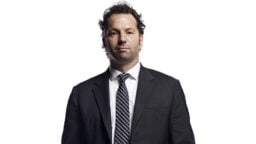
Last week the UK’s Association For Independent Festivals warned that a rise in the tariff its members are obliged to pay to PRS For Music would have a ‘catastrophic effect’ on grass roots music events. Here Paul Reed, General Manager of AIF, puts across his argument – and points to Ireland for a solution that could work for everyone…
As the PRS moves to conclude the Tariff LP review launched in April last year, AIF has issued a warning that any move to simply increase the tariff will have a catastrophic effect on grassroots independent festivals.
This would bankrupt festivals already struggling on incredibly tight margins and there will be closures, destroying a vital platform for artists and songwriters – those very members whom PRS claim to be in the driving seat of this process.
We’ll come back to that. First let us focus for a moment on those songwriters.
AIF and its members believe that fair payment and professional treatment of creators and songwriters is extremely important.
“Festivals are THE incubators for emerging talent in an era of transitional global recorded revenues.”
In fact, we developed an initiative around this with the Musician’s Union- The ‘Fair Play for Festivals’ agreement launched last year which sets out a code of conduct for our members when dealing with emerging artists in areas such as remuneration, logistics, promotion and performance details.
You’ll notice that I’m making no distinction between songwriter and artist; for the vast majority of performances at our member festivals they are one and the same.
Here is a simple fact: Festivals are THE incubators for emerging talent in an era of transitional global recorded revenues.
For example, AIF member Barn on the Farm is a 1,500 capacity event held in Gloucestershire whose line up is 83% emerging artists (45 artists out of a total of 54).
For Kendal Calling, a 20,000 capacity festival in Cumbria, it is 43%. Even for the 50,000 capacity behemoth that is Bestival on the Isle of Wight, it is 35%.
The festival industry is playing a serious role in developing talent and we should not have to pay the price for declining income elsewhere.
It is all very well to say that it wouldn’t be fair to increase the tariff but a complaint is not a solution.
So here is a solution: A separate tariff for festivals that will reflect the distinct nature of festivals, the unique infrastructure costs not related to musical performances and the multi-arts content that is a key factor in so many of our member events.
Guess what? One already exists in Ireland, the multi-venue ‘Tariff MS’ introduced by IMRO in November 2014.
Events are treated on a sliding scale, with a 3% charge for a multi stage one-day festival without camping but for a festival taking place over more than one day with camping, it goes down to 1.8%, with additional discounts for non-music content of up to 33.3% on what the licensee pays.
“The inflexible policy of grouping festivals and concerts under one tariff is absurd and unworkable.”
Content is a vital consideration here: Some AIF festivals have as little as 12% music content onsite and the 3% of gross currently paid to PRS is the equivalent of over 25% of their music programming budget as a result of the current inflexible policy to group festivals and concerts under one tariff.
This is absurd and unworkable. It is telling that only 7% of our 57 members existed when the tariff last went to tribunal in 1988 – it’s little wonder that PRS tariff structures are not fit for purpose.
54% of over 3, 000 respondents to AIF’s 2015 audience survey when asked, “When buying a ticket for a festival what is the single most important factor when deciding which one to attend?” replied that it was the “The general atmosphere and overall vibe, character and quality of the event.”
Only 7.7% replied “Headline acts” and just 26% replied “the music generally”.
The model has shifted and music is no longer the sole driver in audiences attending festivals, it is more about the overall spectacle.
The business model of independent festivals in a nutshell is this: growing expenditure and rising artist fees, low levels of net profit, tight margins, low levels of sponsorship and a dependence on some ancillary income streams in order for the event to be viable.
Promoters often don’t control these, with booking fees an obvious example. It can take seven years for an event to break even and this isn’t unique to independent festivals. It is a tough game and both artists and the PRS have experienced a windfall as a result of the risks taken by promoters.
The income received by the PRS from live events has increased from approximately £1.5m in 1988 to around £25m in 2014. It is only right that songwriters should benefit from the growth of concerts and festivals and this is precisely what has happened.
For a medium-sized 20,000 capacity festival, it costs over £700,000 to build a temporary village or town in a field before the cost of staging or technical production.
“Be under no illusion that this is somehow about songwriters feeling festival promoters are treating them unfairly.”
Concerts in indoor venues do not carry this separate set of costs, so why are they on the same tariff?
Now, let us look a little closer at who actually responded to the tariff LP consultation last year.
PRS for Music has over 118,000 members and approached just under 32,000 of them as part of this consultation.
They received 111 responses in total, with just 48 responses from their members (0.15%).
The major publishers may well have responded but did they consult their individual clients? If not, PRS executives are clearly driving the process alongside some major publishers – be under no illusion that this is about songwriters feeling that festival promoters treat them unfairly.
A festival tariff already exists in Ireland, we are not talking apple and oranges and the PRS could and should take this as a useful, workable precedent. The PRS must take this on-board. If you cut away the grass roots, nothing will grow.
Any attempt to simply drive the tariff up or broaden the royalty base will be seen by the entire live industry as a naked land grab, and this season’s festivals could well be your last.Music Business Worldwide




